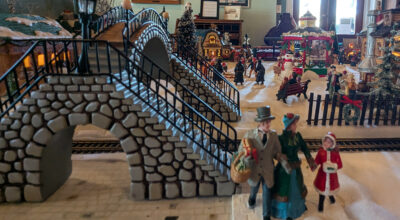Cuba’s admission of shipping arms to N. Korea troublesome
Published 12:00 am Thursday, July 18, 2013
HAVANA (AP) — Cuba’s admission that it was secretly sending aging weapons systems to North Korea has turned the global spotlight on a little-known link in a secretive network of rusting freighters and charter jets that moves weapons to and from North Korea despite U.N. sanctions.
The revelation that Cuba was shipping the arms, purportedly to be repaired and returned, is certain to jeopardize slowly warming ties between the U.S. and Havana, although the extent of the damage remains uncertain. Experts said Cuba’s participation in the clandestine arms network was a puzzling move that promised little military payoff for the risk of incurring U.N. penalties and imperiling detente with Washington.
The aging armaments, including radar system parts, missiles, and even two jet fighters, were discovered Monday buried beneath thousands of tons of raw Cuban brown sugar piled onto a North Korean freighter that was seized by Panama as it headed for home through the Panama Canal.
North Korea is barred by the U.N. from buying or selling arms, missiles or components, but for years U.N. and independent arms monitors have discovered North Korean weaponry headed to Iran, Syria and a host of nations in Africa and Asia. The U.N. says North Korea also has repeatedly tried to import banned arms. What’s more, analysts say, it maintains a thriving sideline in repairing aging Warsaw Pact gear, often in exchange for badly needed commodities, such as Burmese rice.
“They don’t know how to grow rice, but they know how to repair radars,” said Daryl Kimball, executive director of the Arms Control Association, a private group dedicated to promoting arms control.
“The North Koreans are taking desperate measures to pursue that work. Despite the best efforts of the international community to cut off arms transfers to and from North Korea, it will continue in some form.”
The surprise for many observers was that the latest shipment of arms headed to North Korea comes from Cuba, which acknowledged late Tuesday that it was shipping two anti-aircraft missile systems, nine missiles, two Mig-21 fighter jets and 15 jet engine, saying they were headed to North Korea to be repaired there.
The discovery aboard the freighter Chong Chon Gang was expected to trigger an investigation by the U.N. Security Council committee that monitors the sanctions against North Korea, and Panamanian officials said U.N. investigators were expected in Panama on Thursday. Britain’s U.N. Ambassador, Mark Lyall Grant, said that “any weapons transfers, for whatever reason, to North Korea would be a violation of the sanctions regime.”
If Cuba wanted to send the weapons for repairs and have them returned, it would have needed to get a waiver from the Security Council committee monitoring the North Korea sanctions. A spokesman for Luxembourg’s U.N. Mission, which chairs the North Korea sanctions committee, told The Associated Press that there had been no such request from Cuba.
Democrat Robert Menendez, the Cuban-American chairman of the Senate Foreign Relations Committee, said the incident “almost certainly violated” U.N. sanctions and urged the Obama administration to bring it to the Security Council for review.
“Weapons transfers from one communist regime to another hidden under sacks of sugar are not accidental occurrences,” Menendez said Wednesday, adding that it “reinforces the necessity that Cuba remain on the State Department’s list of countries that sponsor state terrorism.”
Panama’s seizure of the freighter, which saw its North Korean captain try to commit suicide and 35 crewmen arrested after resisting police efforts to intercept the ship in Panamanian waters, was badly timed for officials working on baby steps toward a limited detente between the U.S. and Cuba.
High-ranking Cubans were in Washington on Wednesday for migration talks that had been on ice since January 2011.



